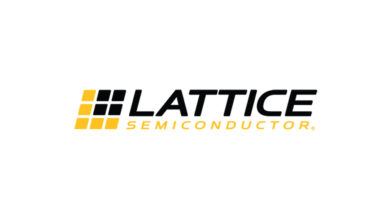GPU Support for CacheQ’s QCC Acceleration Platform

CacheQ Systems’ QCC Acceleration Platform, a heterogeneous computing environment, has received GPU support. It offers better performance and faster development time for all types of computer architectures. This includes multi-core CPUs and GPUs.
GPU adoption has grown rapidly over the past five years. Through 2028, the sector worth $25 billion is expected to grow at an almost 33 percent CAGR.
Hardware companies and The Community of open-source developersThey have developed software to support heterogeneous computing, including multicore CPUs, GPUs and FPGAs that are coupled with these systems. These technologies relied in the past on programmers providing information to compilers to enable parallelism within their programs with hardware-specific APIs such as CUDA (NVIDIA), HIP from AMD and oneAPI (Intel).
Through OpenACC, OpenMP and OpenCLOther initiatives are trying to make it possible for pragmas that can be encoded in C++ or Fortran. In order to get proper code behavior and performance on parallel computer units, each of these tasks requires a deep understanding of the target hardware. This includes managing memory copy events and synchronization events. It also involves forming thread teams, manually removing loop dependencies and race conditions and summating.
CacheQ QCC claims that this compiler platform is the first to allow parallelism to automatically be extracted from C++, C++ and Fortran codes without the developer needing to tell it. QCC can automatically speed up programs for a variety of hardware and outperforms pragma-based techniques in terms of performance. It may also be able to compete with hand-coded API solutions that require little or no hardware knowledge. Developers might then write generic code for specific hardware targets. High performance hardwareAt compile time, without the need to rework or modify it.
“Demand for hardware acceleration using GPUs and other heterogenous compute hardware is growing exponentially,” said Clay Johnson is the CEO and cofounder of CacheQ Systems. “Our goal is to simplify high-performance data center and edge-computing application development. The QCC Acceleration Platform meets that goal and will enable new solutions across a variety of applications, including life sciences, financial trading, government, oil and gas exploration and industrial IoT.”
GPUs, x86 Arm, RISCV, FPGAs
QCC Acceleration Platform is based upon the proprietary CacheQ Virtual MachineCQVM is heterogeneous compute developmentIt converts HLL code from serial to parallel in less than thirty seconds. It provides code profiling and usage estimations as well as memory setup and partitioning across a variety of processors including GPUs and RISC–V.
These features include standard drivers, secure containers and support for multiple boards from many suppliers. The design study allows for profiling, performance modeling, as well reporting on memory activities. An optimization function adds code unrolling and user-driven memory setup. It also allows for automated and user-guided parting.
The FPGA implementation includes a resource estimator and preconfigured shells. There are also several boards and components and the automation of the execution tool. It memory implementation provides multi-port/multi-access, automated integration, and striping.
The QCC Acceleration PlatformCurrently, it is being sold in limited quantities. However, broad availability is expected for 2023. This 0.18 version works with nVidia, AMD GPUs, Xilinx FPGA accelerator board boards and Intel, AMD and Arm CPUs. Prices are available upon request.
Check out the complete article Here







